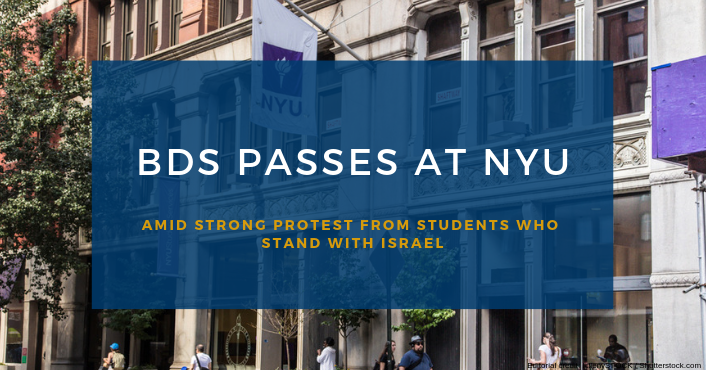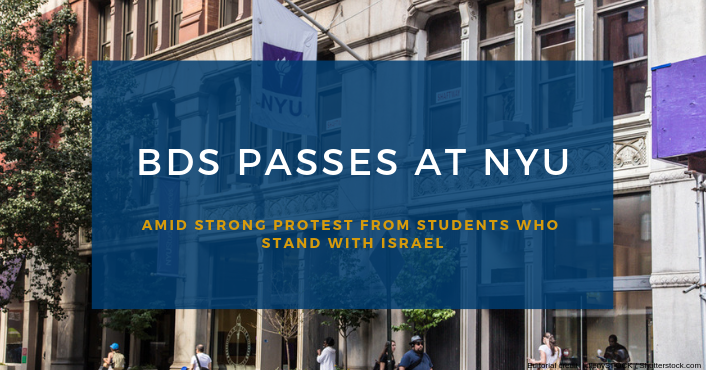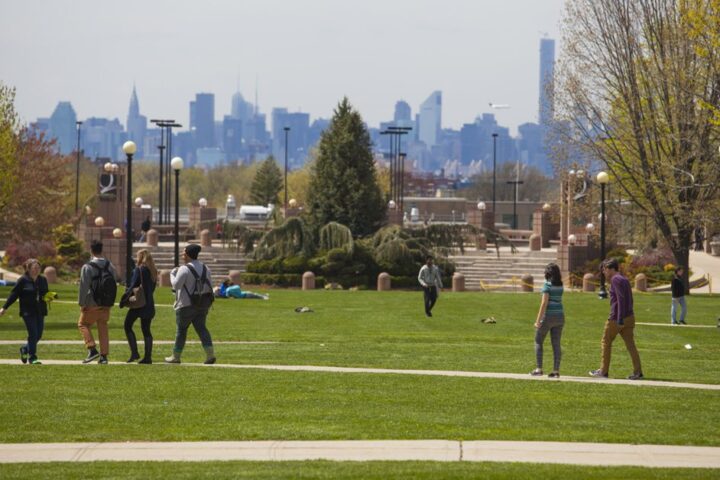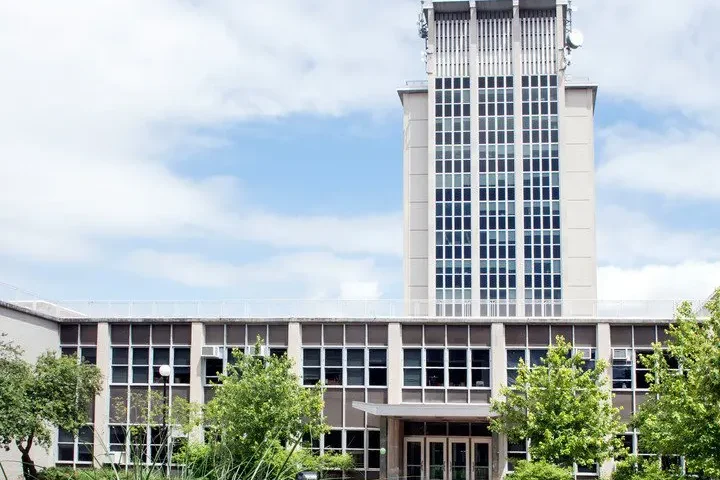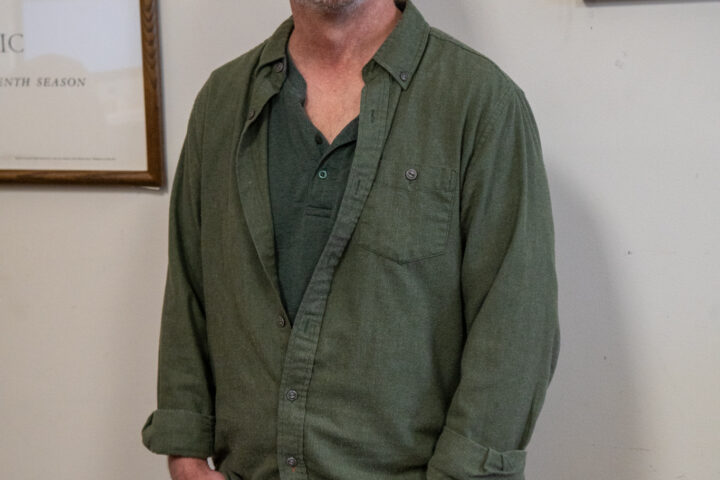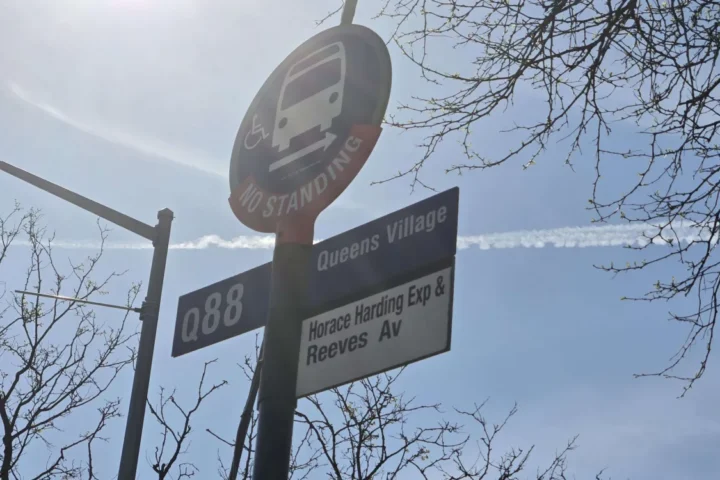“WHY BDS IS THE SAME AS AL QUEDA” read the misspelled headline of a flyer that was distributed to the long line of people who waited to hear panelists speak on behalf of BDS and ending illegal Israeli occupation in Palestine. The conference had come under attack, being criticized as an anti-Semitic event.
On Feb. 7, Boycott, Divestment and Sanctions, paired up with Students for Justice in Palestine at Brooklyn College for a panel discussion with philosopher Judith Butler and human rights activist Omar Barghouti.
The conference centered on the racism faced by Palestinians in Israel and discriminatory policies by Israeli authorities. The main points emphasized were an end to the Palestinian occupation, an end to racial discrimination and the right of Palestinian refugees to return to their homes.
During the discussion, Barghouti refuted opponents’ claims that BDS was against academic freedom.
“We are not for suppressing academic freedom for anyone, not even Israeli academics,” he said. “We are for holding Israeli academic institutions accountable because of their deep complicity in planning, implementing, justifying and whitewashing Israel’s occupation, ethnic cleansing and apartheid.”
Barghouti stressed that the movement aims for freedom, justice and equality.
Sawson, a Palestinian-American student at St. John’s University, said she attended the conference because the issue was of great importance to her. In 1948, her grandparents were forced to leave Bayt Mahsir — a Palestinian village that no longer exists due to Israeli depopulation — and move to Libya. Sawson states that at a young age she was taught by her father not to hate Jews.
“The issue is about human rights. I am against Zionism, not Jews,” she said. “Removing people is wrong. I can’t knock on someone’s door and then take their home.”
Support for the event was not limited to Palestinian-American students. Also in attendance were members from the Orthodox Jewish community, holding signs which read “Judaism, Yes! Zionism, No!” Likewise, co-sponsors such as American Muslims for Palestine, BC’s Lesbian, Gay, Bisexual, Transgender Alliance and Jews for Palestinian Right to Return, showed support for the cause.
Queens College president James Muyskens, also supported the decision to move forward with the event as it displayed the true meaning of academic freedom: being able to express more than one viewpoint.
“I’m actually very proud of how the president there, Karen Gould, handled that situation. I think the chancellor was very strong on the side of academic freedom,” he said. “If we are not willing to let all voices be heard, then it doesn’t mean anything to say we honor academic freedom.”
Moreover, Muyskens states that the same openness of discussion would be put into practice at QC.
“My view has always been the view of the American Civil Liberties Union, speech that you don’t like needs to be countered with more speech and that’s what they’re doing at Brooklyn and that’s certainly what we would do here,” he said.
However, support for the event was not unanimous. From across the street, protestors lined up behind barriers, some of whom crossed them to distribute flyers. A few students were escorted out at the beginning of the conference for being disruptive and refusing to sit down.
CUNY trustee, Jeffrey S. Wiesenfeld was against the event and expressed his views in an op-ed for the Algemeiner. In it, Wiesenfeld compared the panel to Nuremberg, where annual Nazi propaganda rallies were held.
Expanding on his views, Wiesenfeld stressed that the event was not a conference but rather a protection of propaganda under the guise of freedom of speech. He likened the event to being as academic as the practice of eugenics.
In response to the possibility of dissenting panels being added to the conference, Wiesenfeld said students should not have to go to the conference, “like beggars to a bunch of racists, like Jews to Gestapo soldiers, to beg for their right not to go to concentration camps.”
Wiesenfeld further stated that members of the BDS movement were “supporters of Hamas and other terrorist organizations.”
BDS is defined as a non-violent movement which “seeks to use established legal means to achieve its goals,” according to Butler.
Barghouti referred to Wiesenfeld’s comments as “shameful hate-mongering.”
He also urged critics of BDS to have an open mind saying, “Maybe if they were to come out to these events, they could learn something.”
With much controversy derived from the event, Brooklyn College’s Students for Justice in Palestine released a press release rejecting some allegations made about the event.
“In organizing and hosting this event, BC-SJP in no way discriminated against individuals because of their religion, ethnicity or political views,” the press released stated.
“We will also continue our efforts to educate our fellow students and the general public about Israeli abuses of Palestinian human rights, and the complicity of the United States in those abuses, despite the efforts of some who wish to intimidate and silence us.”







